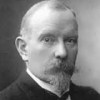Why is it that we remember with effort but forget without effort? That we learn with effort but stay ignorant without effort? That we are active with effort, and lazy without effort?
[Quid est enim, quod cum labore meminimus, sine labore obliuiscimur; cum labore discimus, sine labore nescimus; cum labore strenui, sine labore inertes sumus?]Augustine of Hippo (354-430) Christian church father, philosopher, saint [b. Aurelius Augustinus]
City of God [De Civitate Dei], Book 22, ch. 22 (22.22) (AD 412-416) [tr. Green (Loeb) (1972)]
(Source)
(Source (Latin)). Alternate translations:
What is our labour to remember things, our labour to learn, and our ignorance without this labour? our agility got by toil, and our dullness if we neglect it?
[tr. Healey (1610)]
For why is it that we remember with difficulty, and without difficulty forget? learn with difficulty, and without difficulty remain ignorant? are diligent with difficulty, and without difficulty are indolent?
[tr. Dods (1871)]
How difficult it is to remember, how easy to forget; how hard to learn and how easy to be ignorant; how difficult to make an effort and how easy to be lazy.
[tr. Walsh/Honan (1954)]
How is it that what we learn with toil we forget with ease? that it is hard to learn, but easy to be in ignorance? That activity goes against the grain, while indolence is second nature?
[tr. Bettenson (1972)]
Why is it that we remember with such difficulty, but forget so easily? Why is it that we learn with such difficulty, yet so easily remain ignorant? Why is it that we are vigorous with such difficulty, yet so easily inert?
[tr. Dyson (1998)]
Quotations about:
laziness
Note not all quotations have been tagged, so Search may find additional quotes on this topic.
“Here is where you can’t afford to be lazy,”
My Master said. “Lying in feather beds,
Or under quilts, no one conquers fame,
Without which, once your earthly life is dead,
The only traces you leave behind you are smoke
Blown in the air or bubbles breaking in water.[“Omai convien che tu così ti spoltre”,
disse ’l maestro; “ché, seggendo in piuma,
in fama non si vien, né sotto coltre;
sanza la qual chi sua vita consuma,
cotal vestigio in terra di sé lascia,
qual fummo in aere e in acqua la schiuma.”]Dante Alighieri (1265-1321) Italian poet
The Divine Comedy [Divina Commedia], Book 1 “Inferno,” Canto 24, l. 46ff (24.46-51) [Virgil] (1309) [tr. Raffel (2010)]
(Source)
The analogy of life to smoke and foam have been noted by commentators as resembling similar metaphors in Wisdom 2:1-4 and 5:14 and the Aeneid 5.740.
Virgil's urging of Dante to continue on out of a desire for fame, rather than to learn how to be saved or to come closer to God, have only recently been interpreted as an intentional showing that the poet/guide is not perfect -- another reason, beyond being only a virtuous pagan, that he cannot complete the journey with Dante to Paradise. (See here for more commentary on this.)
(Source (Italian)). Alternate translations:
It now is proper, said my Lord, that you
Should from this bed of yours arise; for they
Ne'er Fame acquire who spend their lives in down:
He who, without pursuing her, consumes
His time, leaves himself such tracts behind,
As Froth in Water, or as Smoke in Air.
[tr. Rogers (1782), ll. 44-49]
Arise! -- In vain the slumb'ring soul aspires,
(Her powers betray'd by sloth, extinct her fires)
In vain she tries the dazzling heights of fame:
As morning fogs disperse to meet no more,
As the waves close behind the lab'ring oar,
The dastard soul expires without a name!
[tr. Boyd (1802), st. 9]
“Now needs thy best of man;” so spake my guide:
“For not on downy plumes, nor under shade
Of canopy reposing, fame is won,
Without which whosoe’er consumes his days
Leaveth such vestige of himself on earth,
As smoke in air or foam upon the wave."
[tr. Cary (1814)]
"Rouse thee," my master urged, "'tis time to throw
This lethargy aside; who dozing lies
'Tween coverlet and feathers, ne'er shall know
Renown, and without her who wastes and dies,
Leaves of himself like trace on earth behind,
As foam on wave, or vapour on the skies."
[tr. Dayman (1843)]
"Now it behooves thee thus to free thyself from sloth," said the Master: "for sitting on down, or under coverlet, man come not into fame;
without which whoso consumes his his life, leaves such vestige of himself on earth, as smoke in air or foam in water."
[tr. Carlyle (1849)]
"Henceforth you must abandon indolence,"
My master said: "'tis not repose on plumes
That leads to fame -- nor yet in shady glooms;
Without the which if one consumes his life,
E'en such a vestige upon the earth he'll make
As smoke in air, or foam on water's track."
[tr. Bannerman (1850)]
"Now it befits thee to shake off this sloth,"
The Master said, "for resting upon down,
And under quilts is not the way to fame;
And without this he who his life consumes,
Leaves of himself on earth no better trace,
Than smoke in air or on the water foam."
[tr. Johnston (1867)]
"Now it behoves thee thus to put off sloth,"
My Master said; "for sitting upon down,
Or under quilt, one cometh not to fame,
Without which whoso his life consumes
Such vestige leaveth of himself on earth,
As smoke in air or in the water foam."
[tr. Longfellow (1867)]
"Henceforward it behoves that thou brace thyself thus," said the Master; "for not by sitting on feathers does one come into fame, nor under quilts; without the which whoso consumes his life leaves such trace on earth of himself as smoke in air or its froth on water."
[tr. Butler (1885)]
"Henceforth 'tis fitting thou shouldst shake off sloth,"
The master cried, "since idly lapt in down
'Neath coverlets, for him Fame never groweth.
Who so his life consumes without renown.
Leaves such a vestige of himself on earth,
As it were froth on air or water blown."
[tr. Minchin (1885)]
“Now it behoves thee thus to put off sloth,” said the Master, “for, sitting upon down or under quilt, one attains not fame, without which he who consumes his life leaves of himself such trace on earth as smoke in air, or in water the foam."
[tr. Norton (1892)]
"'Tis thus that thou must now shake thyself free from sloth," my Master said, "for seated on down, or under coverlet, man cometh not to fame; unattended by which whoso doth spend his days, leaveth such traces of himself on earth, as smoke in air or foam on water."
[tr. Sullivan (1893)]
"Thus must thou ever shake off sloth henceforward;"
The Master said, " for sitting upon feathers
Man cometh not to fame, nor under quilting;
Which lacking, whosoe'er consumes his life-time
Leaves of himself on earth just such a vestige
As smoke doth leave in air, and foam in water."
[tr. Griffith (1908)]
"Now must thou thus cast off all sloth," said the Master "for sitting on down or under blankets none comes to fame, and without it he that consumes his life leaves such trace of himself on earth as smoke in air or foam on water."
[tr. Sinclair (1939)]
"Now it behoveth lassitude to leave,"
The Master said, "for softly on down reclined
Or under coverlet, none can fame achieve,
Without which he who dallieth leaves behind
Such vestige of himself on earth imprest
As foam in water or smoke upon the wind."
[tr. Binyon (1943)]
"Put off this sloth," the master said, "for shame!
Sitting on feather-pillows, lying reclined
Beneath the blanket is no way to fame --
Fame, without which man's life wastes out of mind,
Leaving on earth no more memorial
Than foam in water or smoke upon the wind."
[tr. Sayers (1949)]
"Up on your feet! This is no time to tire!"
my Master cried. "The man who lies asleep
will never waken fame, and his desire
and all his life drift past him like a dream,
and the traces of his memory fade from time
like smoke in the air, or ripples on a stream."
[tr. Ciardi (1954)]
“Now it behooves you thus to cast off sloth,” said my master, “for sitting on down or under coverlet, no one comes to fame, without which whoso consumes his life leaves such vestige of himself on earth as smoke in air or foam on water."
[tr. Singleton (1970)]
"Come on, shake off the covers of this sloth,"
the master said, "for sitting softly cushioned,
or tucked in bed, is no way to win fame;
and without it man must waste his life away,
leaving such traces of what he was on earth
as smoke in wind and foam upon the water."
[tr. Musa (1971)]
“Now you must cast aside your laziness,”
my master said, “for he who rests on down
or under covers cannot come to fame;
and he who spends his life without renown
leaves such a vestige of himself on earth
as smoke bequeaths to air or foam to water."
[tr. Mandelbaum (1980)]
"Now is the time for you to rouse yourself,"
The master said; "for sitting on a cushion
Is not the way to fame, nor staying in bed;
And without fame, a man must spend his life
Only to leave such traces upon earth
As smoke leaves in the air, or foam in the water."
[tr. Sisson (1981)]
"To cast off sloth
Now well behooves you," said my master then:
"For resting on soft down, or underneath
The blanket's cloth, is not how fame is won --
Without which, one spends life to leave behind
As vestige of himself on earth the sign
Smoke leaves on air, or foam on water."
[tr. Pinsky (1994), l. 46ff]
“From now on you will have to cast off sloth in this way,” said my master, “for one does not gain fame sitting on down cushions, or while under coverlets;
and whoever consumes his life without fame leaves a mark of himself on earth like smoke in the air or foam in water."
[tr. Durling (1996)]
Now, you must free yourself from sloth: men do not achieve fame, sitting on down, or under coverlets; fame, without which whoever consumes his life leaves only such trace of himself, on earth, as smoke does in the air, or foam on water.
[tr. Kline (2002)]
"Now you must needs," my teacher said, "shake off
your wonted indolence. No fame is won
beneath the quilt or sunk in feather cushions.
Whoever, fameless, wastes his life away,
leaves of himself no greater mark on earth
than smoke in air or froth upon the wave."
[tr. Kirkpatrick (2006)]
'Now must you cast off sloth,' my master said.
'Sitting on feather cushions or stretched out
under comforters, no one comes to fame.
Without fame, he who spends his time on earth
leaves only such a mark upon the world
as smoke does on the air or foam on water.'
[tr. Hollander/Hollander (2007)]
“Now you must,”
My Guide said, “quell the slothful urge to rest.
A swansdown seat and a soft blanket just
Keep you from fame, without which no one who
Consumes his life leaves more trace in the world
Than smoke in air and foam on water do."
[tr. James (2013)]
Now, as in the Latin and other languages, a yawning fellow is synonymous or equivalent to a negligent and sluggish fellow; this idle custom ought certainly to be avoided; being (as was observed) disagreeable to the sight, offensive to the ear, and contrary also to that natural claim, which every one has, to respect. For when we indulge ourselves in this listless behaviour, we not only intimate that the company we are in does not greatly please us; but also make a discovery, not very advantageous to ourselves; I mean, that we are of a drowsy, lethargic disposition: which must render us by no means amiable or pleasing to those with whom we converse.
[Et ho io sentito molte volte dire a’ savi litterati che tanto viene a dire in latino «sbadigliante» quanto ’neghittoso’ e ’trascurato’. Vuolsi adunque fuggire questo costume, spiacevole -come io ho detto- agli occhi et all’udire et allo appetito; perciò che, usandolo, non solo facciamo segno che la compagnia con la qual dimoriamo ci sia poco a grado, ma diamo ancora alcun indicio cattivo di noi medesimi, cioè di avere addormentato animo e sonnacchioso; la qual cosa ci rende poco amabili a coloro co’ quali usiamo.]
Giovanni della Casa (1503-1556) Florentine poet, author, diplomat, bishop
Galateo: Or, A Treatise on Politeness and Delicacy of Manners [Il Galateo overo de’ costumi], ch. 3 (1558) [tr. Graves (1774)]
(Source)
(Source (Italian)). Alternate translations:
A yawner meaneth as much in Latin as a careles and Idle bodie. Let us then flye these condicions, that loathe (as I said) the eyes, the Eares, & the Stomacke. For in using these fashions, we doe not only shewe that we take litle pleasure in the company, but we geve them occasion withall, to judge amis of us : I meane yt we have a drowsye & hevie nowle, which makes us ill wellcom, to all companies we come unto.
[tr. Peterson (1576)]
Many times have I heard learned men say that in Latin the word for yawning is the same as that for lazy and careless. It is therefore advisable to avoid this habit which, as I have said, is unpleasant to the ear, the eyes, and the appetite, because by indulging in it we show that we are not pleased with our companions, and we also give a bad impression of ourselves, that is to say, that we have a drowsy and sleepy spirit which makes us little liked by those with whom we are dealing.
[tr. Einsenbichler/Bartlett (1986)]
In short, the contradiction in the old defense of class stratification is that it defends leisure for the leisure class, but not for the underclass. With reference to the underclass, leisure is said to destroy the incentive to work, leads to slothfulness and self-indulgence, and retards cognitive and moral development. When applied to the leisure class, the concept evokes an image of Plato and Aristotle, whose leisure was based on slave labor, creating the intellectual foundations of Western civilization; or patrician slave-owners like Washington and Jefferson laying the foundations of American civilization; or creative aristocrats like Count Leo Tolstoy or Bertrand, Earl Russell; or, even closer to home, of our own sons and daughters (or of ourselves, when we were young adults) being freed from the stultifying tasks of earning a living until well into our adult years so that we could study in expensive universities to gain specialized knowledge and skills.
James Gilligan (b. c. 1936) American psychiatrist and author
Preventing Violence, ch. 5 (2001)
(Source)
Thou morning client, this is my retreat:
Go to the town and palace of the great.
No lawyer I, nor can your cause defend;
But old, and idle, and the muse’s friend.
Ease and repose I love, but if in vain
I seek them here; why not to town again?[Matutine cliens, urbis mihi causa relictae,
Atria, si sapias, ambitiosa colas.
Non sum ego causidicus, nec amaris litibus aptus,
Sed piger et senior Pieridumque comes;
tia me somnusque iuvant, quae magna negavit
Roma mihi: redeo, si vigilatur et hic.]Martial (AD c.39-c.103) Spanish Roman poet, satirist, epigrammatist [Marcus Valerius Martialis]
Epigrams [Epigrammata], Book 12, epigram 68 (12.68) (AD 101) [tr. Hay (1755)]
(Source)
(Source (Latin)). Alternate translations:
Whoe'er in town dist morning-homage pay,
And wast one cause, why thence I win'd my way;
Hunt now ambition's hants, let me advise;
And learn, at least in this, learn to be wise.
I am no brangler, nor can hairs untwine:
My growing age asks ease, yet woos the Nine.
Scenes are my joy, for which at Rome I sigh'd:
But thither I return, if here deni'd.
[tr. Elphinston (1782), Book 2, ep. 136]
O clients, that beset me in the morning, and who were the cause of my departure from Rome, frequent, if you are wise, the lordly mansions of the city. I am no lawyer, nor fitted for pleading troublesome causes, but inactive, somewhat advanced in years, and a votary of the Pierian sisters. I wish to enjoy repose and slumber, which great Rome denied; but I must return thither, if I am to be equally hunted here.
[tr. Bohn's Classical (1859)]
Morning client, the cause of my leaving Rome, you would court, were you wise, the halls of greatness. No pleader am I, nor fitted for bitter lawsuits, but an indolent man and one growing old, and the comrade of the Muses. Ease and sleep attract me, and great Rome denied me these; I return if I am sleepless even here.
[tr. Ker (1919)]
I fled from Rome and early calls,
So, Spanish friends, I pray you,
Be wise and seek the lordly halls
Of those who can repay you.
I hate the courts, and legal strife
My lazy mind refuses,
For I am getting on in life
And love to serve the Muses;
Unbroken sleep I love; the stir
And din of Rome destroy it;
But I am going back to her
If here I can't enjoy it.
[tr. Pott & Wright (1921)]
Poor morning client (you remind me
Of all I loathed and left behind me
in Rome), if you had any nous
Instead of calling on my house
You'd haunt the mansions of the great.
I'm not some wealthy advocate
Blessed with a sharp, litigious tongue,
I'm just a lazy, far from young
Friend of the Muses who likes ease
And sleep. Great Rome denied me these:
If I can't find them even in Spain,
I may as well go back again.
[tr. Michie (1972)]
Morning client, reason why I left Rome, if you were sensible, you wuiold dance attendance on pretentious halls. I am no advocate nor apt for bitter lawsuits, but lazy and elderly and a companion of the Pierian maids. I am fond of leisure and sleep, which great Rome denied me. If I'm kept awake here too, I go back.
[tr. Shackleton Bailey (1993)]
You want a patron, and you pester me --
Exactly what made me the City flee.
You're not at some ambitious lawyer's door.
A poet now retired, I'd rather snore.
If Rome you are inflicting on me here,
Then backward to the real one I must steer.
[tr. Wills (2007)]
You early-morning client -- you're the reason I left Rome. If you had sense, you'd hang around the lobbies of people who care about appearances. I'm no barrister, I've no head for bitter litigation: I'm sleepy, I'm getting old, I hang out with the Muses; what I like is free time and sleep, the very things that mighty Rome wouldn't let me have. If there are early mornings even here, I'm going back.
[tr. Nisbet (2015)]
Morning appointment -- my reason for leaving the city --
If you knew better, you would visit more ambitious homes.
I am no lawyer, no man prepared for harsh suits,
I am a lazy and aging friend of the Muses.
Sleep and leisure make me happy -- the very things
Which Rome denied me. But I’ll go back if I can’t sleep here.
[tr. @sentantiq (2018)]
It is all very well to talk about being the captain of your soul. It is hard, and only a few heroes, saints, and geniuses have been the captains of their souls for any extended period of their lives. Most men, after a little freedom, have preferred authority with the consoling assurances and the economy of effort it brings.
Walter Lippmann (1889-1974) American journalist and author
A Preface to Morals, ch. 1, sec. 3 (1929)
(Source)
One strain in Protestant thinking has always looked to economic life not just for its efficacy in producing goods and services but as a vast apparatus of moral discipline, of rewards for virtue and industry and punishments for vice and indolence.
Richard Hofstadter (1916-1970) American historian and intellectual
“Pseudo-Conservatism Revisited — 1965,” sec. 3 (1965)
(Source)
On the other hand, we denounce with righteous indignation and dislike men who are so beguiled and demoralized by the charms of pleasure of the moment, so blinded by desire, that they cannot foresee the pain and trouble that are bound to ensue; and equal blame belongs to those who fail in their duty through weakness of will, which is the same as saying through shrinking from toil and pain. These cases are perfectly simple and easy to distinguish. In a free hour, when our power of choice is untrammeled and when nothing prevents our being able to do what we like best, every pleasure is to be welcomed and every pain avoided. But in certain circumstances and owing to the claims of duty or the obligations of business it will frequently occur that pleasures have to be repudiated and annoyances accepted. The wise man therefore always holds in these matters to this principle of selection: he rejects pleasures to secure other greater pleasures, or else he endures pains to avoid worse pains.
[At vero eos et accusamus et iusto odio dignissimos ducimus, qui blanditiis praesentium voluptatum deleniti atque corrupti, quos dolores et quas molestias excepturi sint, obcaecati cupiditate non provident, similique sunt in culpa, qui officia deserunt mollitia animi, id est laborum et dolorum fuga. et harum quidem rerum facilis est et expedita distinctio. nam libero tempore, cum soluta nobis est eligendi optio, cumque nihil impedit, quo minus id, quod maxime placeat, facere possimus, omnis voluptas assumenda est, omnis dolor repellendus. temporibus autem quibusdam et aut officiis debitis aut rerum necessitatibus saepe eveniet, ut et voluptates repudiandae sint et molestiae non recusandae. itaque earum rerum hic tenetur a sapiente delectus, ut aut reiciendis voluptatibus maiores alias consequatur aut perferendis doloribus asperiores repellat.]
Marcus Tullius Cicero (106-43 BC) Roman orator, statesman, philosopher
De Finibus Bonorum et Malorum [On the Ends of Good and Evil], Book 1, sec. 33 (ch. 10) (44 BC) [tr. Rackham (1914)]
(Source)
Alt. trans.:
- "Then again we criticize and consider wholly deserving of our odium those who are so seduced and corrupted by the blandishments of immediate pleasure that they fail to foresee in their blind passion the pain and harm to come. Equally blameworthy are those who abandon their duties through mental weakness -- that is, through the avoidance of effort and pain. It is quite simple and straightforward to distinguish such cases. In our free time, when our choice is unconstrained and there is nothing to prevent us doing what most pleases us, every pleasure is to be tasted, every pain shunned. But in certain circumstances it will often happen that either the call of duty or some sort of crisis dictates that pleasures are to be repudiated and inconveniences accepted. And so the wise person will uphold the following method of selecting pleasures and pains: pleasures are rejected when this results in other greater pleasures; pains are selected when this avoids worse pains." [On Moral Ends, tr. Woolf (2001)]
- "But in truth we do blame and deem most deserving of righteous hatred the men who, enervated and depraved by the fascination of momentary pleasures, do not foresee the pains and troubles which are sure to befall them, because they are blinded by desire, and in the same error are involved those who prove traitors to their duties through effeminacy of spirit, I mean because they shun exertions and trouble. Now it is easy and and simple to mark the difference between these cases. For at our seasons of ease, when we have untrammelled freedom of choice, and when nothing debars us from the power of following the course that pleases us best, then pleasure is wholly a matter for our selection and pain for our rejection. On certain occasions however either through the inevitable call of duty or through stress of circumstances, it will often come to pass that we must put pleasures from us and must make no protest against annoyance. So in such cases the principle of selection adopted by the wise man is that he should either by refusing cerftain pleasures attain to other and greater pleasures or by enduring pains should ward off pains still more severe." [tr. Reid (1883)]
- "But we do accuse those men, and think them entirely worthy of the greatest hatred, who, being made effeminate and corrupted by the allurements of present pleasure, are so blinded by passion that they do not foresee what pains and annoyances they will hereafter be subject to; and who are equally guilty with those who, through weakness of mind, that is to say, from eagerness to avoid labour and pain, desert their duty. And the distinction between these things is quick and easy. For at a time when we are free, when the option of choice is in our own power, and when there is nothing to prevent our being able to do whatsoever we choose, then every pleasure may be enjoyed, and every pain repelled. But on particular occasions it will often happen, owing whether to the obligations of duty or the necessities of business, that pleasures must be declined and annoyances must not be shirked. Therefore the wise man holds to this principle of choice in those matters, that he rejects some pleasures, so as, by the rejection to obtain others which are greater, and encounters some pains, so as by that means to escape others which are more formidable." [On the Chief Good and Evil, tr. Yongue (1853)]
I divide my officers into four classes: the clever, the lazy, the industrious, and the stupid. Each officer possesses at least two of these qualities. Those who are clever and industrious are fitted for the highest staff appointments. Use can be made of those who are stupid and lazy. The man who is clever and lazy however is for the very highest command; he has the temperament and nerves to deal with all situations. But whoever is stupid and industrious is a menace and must be removed immediately!
Kurt von Hammerstein-Equord (1878-1943) German general
(Attributed)
Possibly apocryphal. Quoted (unconfirmed) in Horst Poller, Bewältigte Vergangenheit. Das 20. Jahrhundert, erlebt, erlitten, gestaltet [Conquered Past. The 20th century, witnessed, endured, shaped] (2010). Sometimes cited to Truppenführung [Troop Leading] (1933), the German Army Field Manual, but not found there. Also attributed to Erich von Manstein.
It is always a temptation to a rich and lazy nation,
To puff and look important and to say: —
“Though we know we should defeat you, we have not the time to meet you.
We will therefore pay you cash to go away.”And that is called paying the Dane-geld;
But we’ve proved it again and again,
That if once you have paid him the Dane-geld
You never get rid of the Dane.Rudyard Kipling (1865-1936) English writer
School History, “Dane-Geld (A.D. 980-1016),” st. 3-4 (1911) [with C.R.L. Fletcher]
(Source)
The biggest sin is sitting on your ass.
Florynce "Flo" Kennedy (1916-2000) American lawyer, feminist, civil rights activist
(Attributed)
(Source)
Quoted in Gloria Steinem, "The Verbal Karate of Florynce R. Kennedy, Esq.," Ms. (Mar 1973).
Full quote: "Some people say they won’t work 'inside the system' -- they’re 'waiting for the revolution.' Well, when the ramparts are open, honey, I'll be there. But until then, I'm going to go right on zapping the business and government delinquents, the jockocrats, the fetus fetishists, and all the other niggerizers any way I can. The biggest sin is sitting on your ass."
Destiny is for people who are too lazy to create alternate timelines.
A person who has not done one half his day’s work by ten o’clock runs a chance of leaving the other half undone.
Emily Brontë (1818-1848) British novelist, poet [pseud. Ellis Bell]
Wuthering Heights, ch. 7 (1847) [Nelly]
(Source)
It is infinitely difficult to know when and where one should stop, and for all but one in thousands the goal of their thinking is the point at which they have become tired of thinking.
[Es ist unendlich schwer, zu wissen, wenn und wo man bleiben soll, und Tausenden für einen ist das Ziel ihres Nachdenkens die Stelle, wo sie des Nachdenkens müde geworden.]
There is a fire-fly in the southern clime
Which shineth only when upon the wing;
So it is with the mind: when once we rest,
We darken.Philip James Bailey (1816-1902) English poet, lawyer
Festus, Sc. “A Village Feast – Evening” [Festus] (1839)
(Source)
Usually paraphrased (earliest source (1872)):
The firefly only shines when on the wing.
So is it with the mind -- when once we rest
We darken.
“Now … if you trust in yourself …”
“Yes?”
“… and believe in your dreams …”
“Yes?”
“… and follow your star …” Miss Tick went on.
“Yes?”
“… you’ll still be beaten by people who spent their time working hard and learning things and weren’t so lazy.”
That the greatest of evils is idleness, that the poor are the victims, not of circumstances, but of their own “idle, irregular, and wicked courses,” that the truest charity is not to enervate them by relief, but so to reform their characters that relief may be unnecessary — such doctrines turned severity from a sin into a duty, and froze the impulse of natural pity with an assurance that, if indulged, it would perpetuate the suffering which it sought to allay.
R. H. Tawney (1880-1962) English writer, economist, historian, social critic [Richard Henry Tawney]
Religion and the Rise of Capitalism, ch. 4, sec. 4 (1926)
(Source)
A Life of Leisure and a Life of Laziness are two things.
Thomas Fuller (1654-1734) English physician, preacher, aphorist, writer
Gnomologia: Adages and Proverbs, # 240 (1732)
(Source)
Trusting to luck is only another name for trusting to lazyness.
Josh Billings (1818-1885) American humorist, aphorist [pseud. of Henry Wheeler Shaw]
Everybody’s Friend, Or; Josh Billing’s Encyclopedia and Proverbial Philosophy of Wit and Humor, ch. 131 “Affurisms: Plum Pits (1)” (1874)
(Source)
Unless we can extensively program our behavior, we waste tremendous amounts of information-processing capacity on trivia. This is why we form habits. Watch a committee break for lunch and then return to the same room: almost invariably its members seek out the same seats they occupied earlier. … Choosing the same seat spares us the need to survey and evaluate other possibilities.
It is the common fate of the indolent to see their rights become a prey to the active. The condition upon which God hath given liberty to man is eternal vigilance; which condition if he break, servitude is at once the consequence of his crime and the punishment of his guilt.
Everyone confesses that exertion which brings out all the powers of body and mind is the best thing for us; but most people do all they can to get rid of it, and as a general rule nobody does much more than circumstances drive them to do.
As a confirmed melancholic, I can testify that the best and maybe only antidote for melancholia is action. However, like most melancholics, I suffer also from sloth.
Edward Abbey (1927-1989) American anarchist, writer, environmentalist
A Voice Crying in the Wilderness, ch. 4, “Life and Death and All That” (1989)
(Source)
Aim at perfection in everything, though in most things it is unattainable; however, they who aim at it, and persevere, will come much nearer it than those whose laziness and despondency make them give it up as unattainable.
Lord Chesterfield (1694-1773) English statesman, wit [Philip Dormer Stanhope]
Letter to his son, #226 (24 May 1750)
(Source)

































